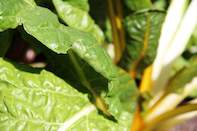
South Africa is a leader on the African continent when it comes to the adoption of biotechnology, with a well-established regulatory framework and more than 20 years’ experience in regulating genetically modified organisms (GMOs).
Its first trials on genetically modified crops were conducted in 1989 already, with the commercial release of genetically modified, insect-resistant cotton and maize first approved in 1997. South Africa today is the eight largest producers of GMO crops, with GMO maize accounting for nearly eighty percent of the area planted under maize. All the cotton planted in South Africa is genetically modified as is approximately 95% of the soybean.
Activities with GMOs in South Africa are primarily regulated under the GMO Act, including research and development, import/export, production, consumption and other uses of GMOs and their products, with the National Environmental Management: Biodiversity Act (NEMBA), the Consumer Protection Act and the Foodstuffs Cosmetics and Disinfectants Act imposing additional rules on these activities.
The GMO Act establishes minimum standards to ensure the food/feed and environmental safety and socio-economic sustainability of all activities involving GMOs.
All activities with GMOs require a permit, unless organisms are contained in a registered facility. A person interested in carrying out a GMO-related activity has to apply to the Registrar, with the application including a scientifically based risk assessment, proposed risk assessment measures, a copy of public notices as required under the GMO Regulations and if appropriate an environmental risk assessment.
Permit applications are evaluated by an Advisory Committee composed of many independent scientists. Decisions by the Executive Council are based on the information in the application, the Advisory Committee’s recommendations, the public’s inputs and must align with the government's policy framework. A unanimous Executive Committee resolution is required for the commercial release of any GMO.
 Many different ways of farming are used in South Africa, ranging from intensive to extensive and free-range, conventional to organic, biodyn...
Many different ways of farming are used in South Africa, ranging from intensive to extensive and free-range, conventional to organic, biodyn...